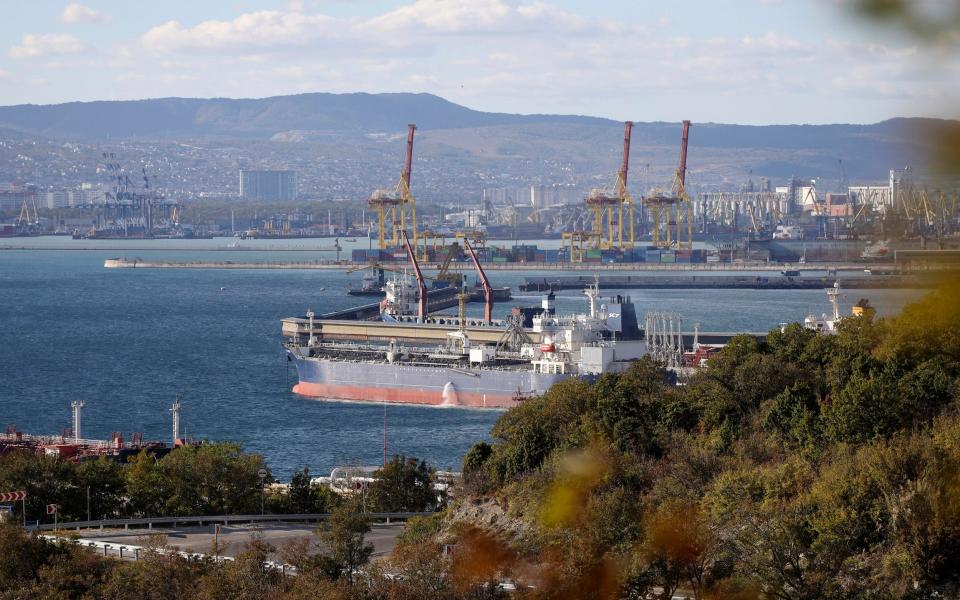EU to cap Russian oil at $60 a barrel

The EU is planning to roll out a price cap on Russian oil of $60 a barrel in an effort to curb Putin’s energy revenues.
Brussels is pushing the bloc’s 27 member states to agree to the deal, according to multiple reports.
But Poland, which has lobbied for the cap to be as low as possible, has not yet confirmed if it will support the move and is seen as the main obstacle to an agreement.
EU countries and the G7 have been locked in discussions for months over a potential price cap, which is designed to target the Kremlin’s vast income from energy.
The G7 last week proposed a cap of between $65 and $70 a barrel, but this was met with opposition from Poland, Lithuania and Estonia amid concerns it did not go far enough.
The bloc’s fresh proposal will also include an adjustment mechanism to keep the cap at 5pc below market price, based on International Energy Agency figures.
Benchmark Brent crude was trading at about $81 a barrel on Thursday evening. However, Urals crude, Russia’s biggest export, has tumbled further, even dropping below the $60 mark.
Any deal would bring to an end months of wrangling over how to cut Russia’s revenues without causing further disruption in the market.
The US has been a vocal proponent of the plan, with President Joe Biden’s administration keen to keep supplies steady and avoid another sharp jump in oil prices.
The G7 has also agreed a price cap on seaborne Russian oil, which is due to come into effect next week.
This will replace a tougher outright EU ban on buying Russian seaborne crude as a way to safeguard supply.
The price cap will be indirectly enforced by banning shipping and insurance companies from handling cargoes of Russian oil around the globe unless it is sold for less than the agreed price.
If confirmed, the new EU price cap will be reviewed in mid-January and every two months after that, according to a document seen by Reuters.
This would allow the bloc to assess how the scheme is performing and respond to any resulting “turbulence” in the global oil market.
The document said a 45-day transitional period would apply to ships carrying Russian oil that were loaded before December 5 and unloaded at their final destination by January 19.

 Yahoo Finance
Yahoo Finance 